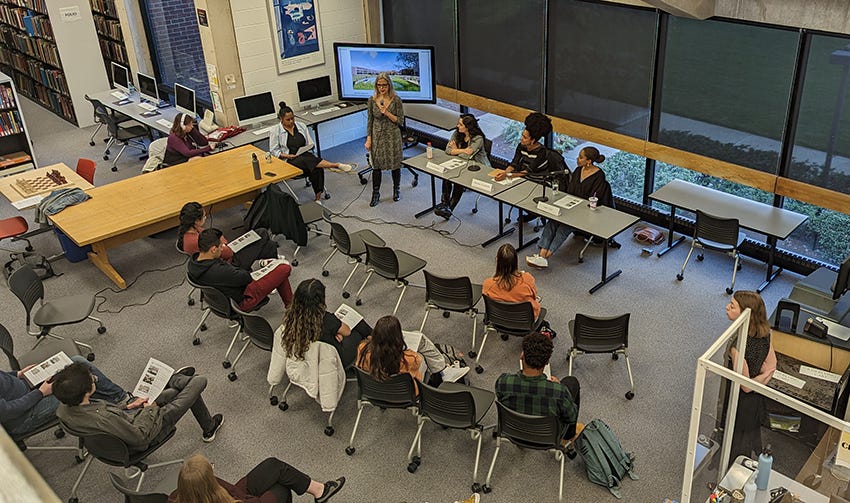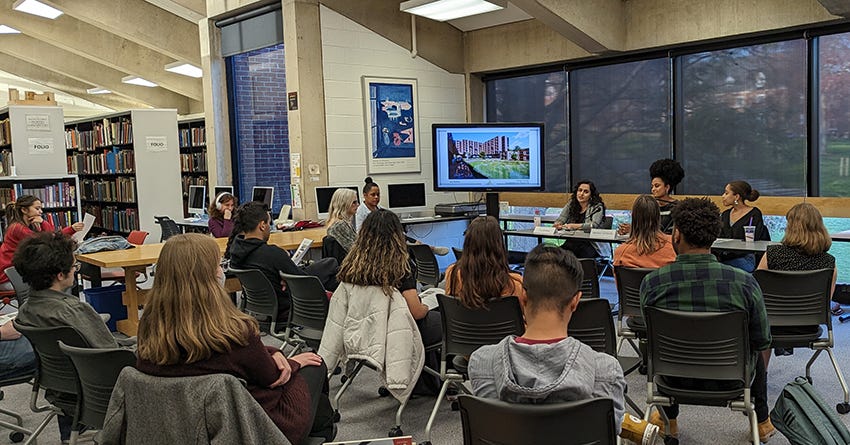The other evening, we hosted a town hall with current students, to give them an opportunity to talk with Ava, Melonee, and Leah from the podcast. Several students wondered how they made the transition from the independence of grad school, especially after being the driving force of their master’s thesis project for over a year. What happens to your voice as just one of many, a new employee with relatively low status in a firm?
In our interviews, everyone identified the tension between speaking up and listening to their more experienced mentors in the office. They’re aware that they have much to learn before they can stir things up, even as they feel a sense of urgency.
“I myself consider myself to be very professional,” Ava said. “I will speak to you very politely. But I think there's a part of professionalism that limits us in this movement, and that is [the danger of] being too nice when these problems are out there and we just need to talk about it, and people just don't, because it feels unprofessional.”
Lately, Ava has been asking more pointed questions: “Hey, what are we doing about sustainability? Because I'm not feeling it to the point that I want to. So can we talk about it?” Even as her questions make some people uncomfortable, she looks for allies in the generation coming up. “I'm not gonna stop asking those questions. . . . I am a millennial, but really, my part of the movement is getting excited about Gen Z, getting into the workforce and being the person that's like, yes, say it, say it. I'm here. I'm ready for you to say it so I can say it, so we all start saying it.”
Juhi’s experience has been very similar to Ava’s. “I am also in a phase and hope to always be in the phase of asking questions and challenging the status quo. That's something that I certainly did ask at my job interviews before I joined this firm, because I was starting to get really frustrated by what was being marketed versus what was actually being practiced by different firms.”
Juhi’s focus is on learning the specific skills she needs to be a more effective advocate for climate-resilient, sustainable design. “I'm learning more and more where I can plug in, and with the knowledge that I do have, I am asking questions from where I'm standing. My hope is to not lose faith in my place in the movement. . . . We learn these buzzwords and conditions to work towards, like [the building] needs to have a tight envelope and has to have a high performance design. And then you come to the workplace and you're like, what does that even mean? I don't know what goes in a wall. And so I'm basically learning what goes in a wall. That's what I'm doing. And I have to say it's really cool.”
How do you navigate the tension between soaking up everything you need to know and challenging your mentors to think differently?
This project is supported by a Faculty-Student Research Award from the Graduate School, University of Maryland, as well as grants from the University’s Sustainability Fund and the School of Architecture, Planning & Preservation.







